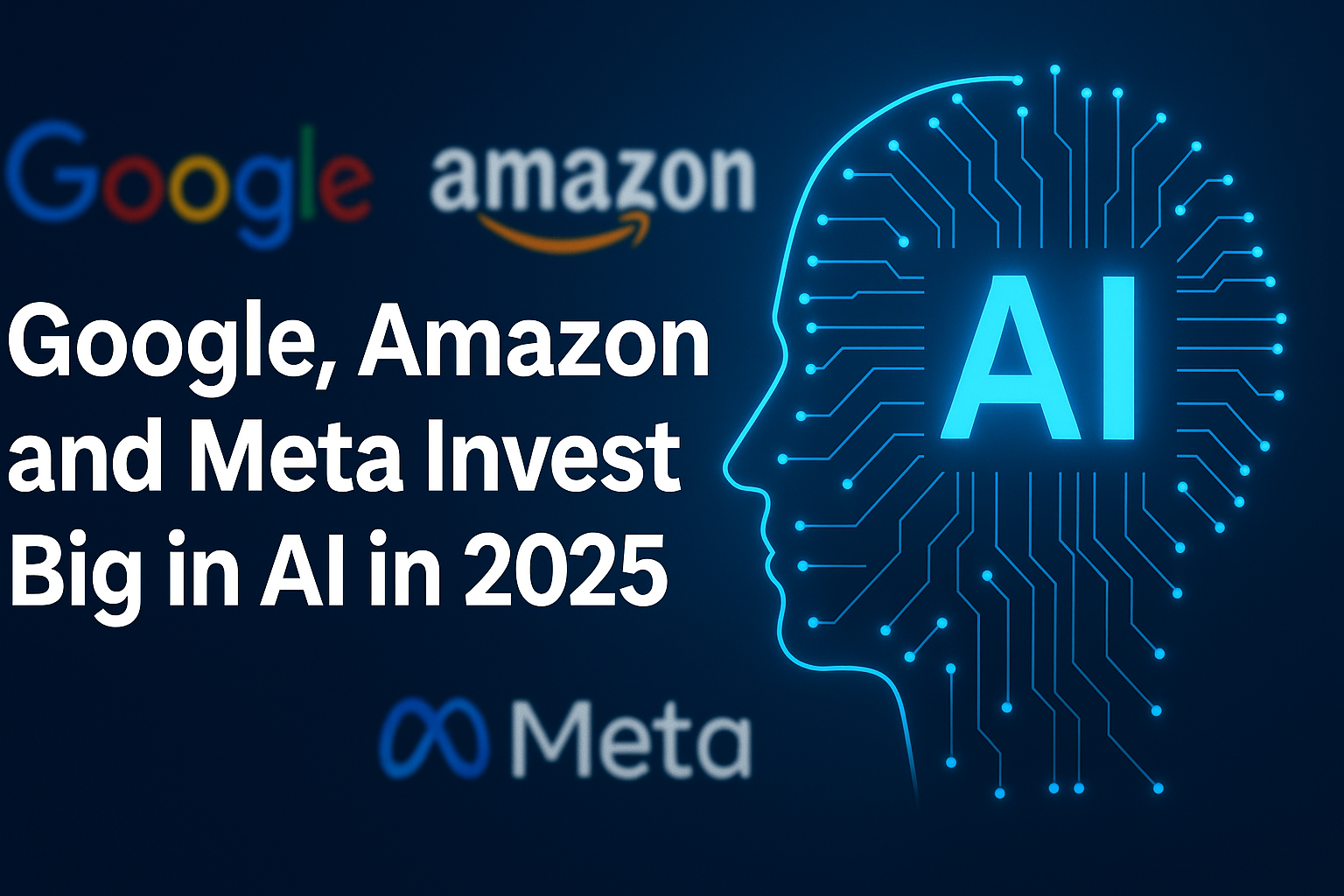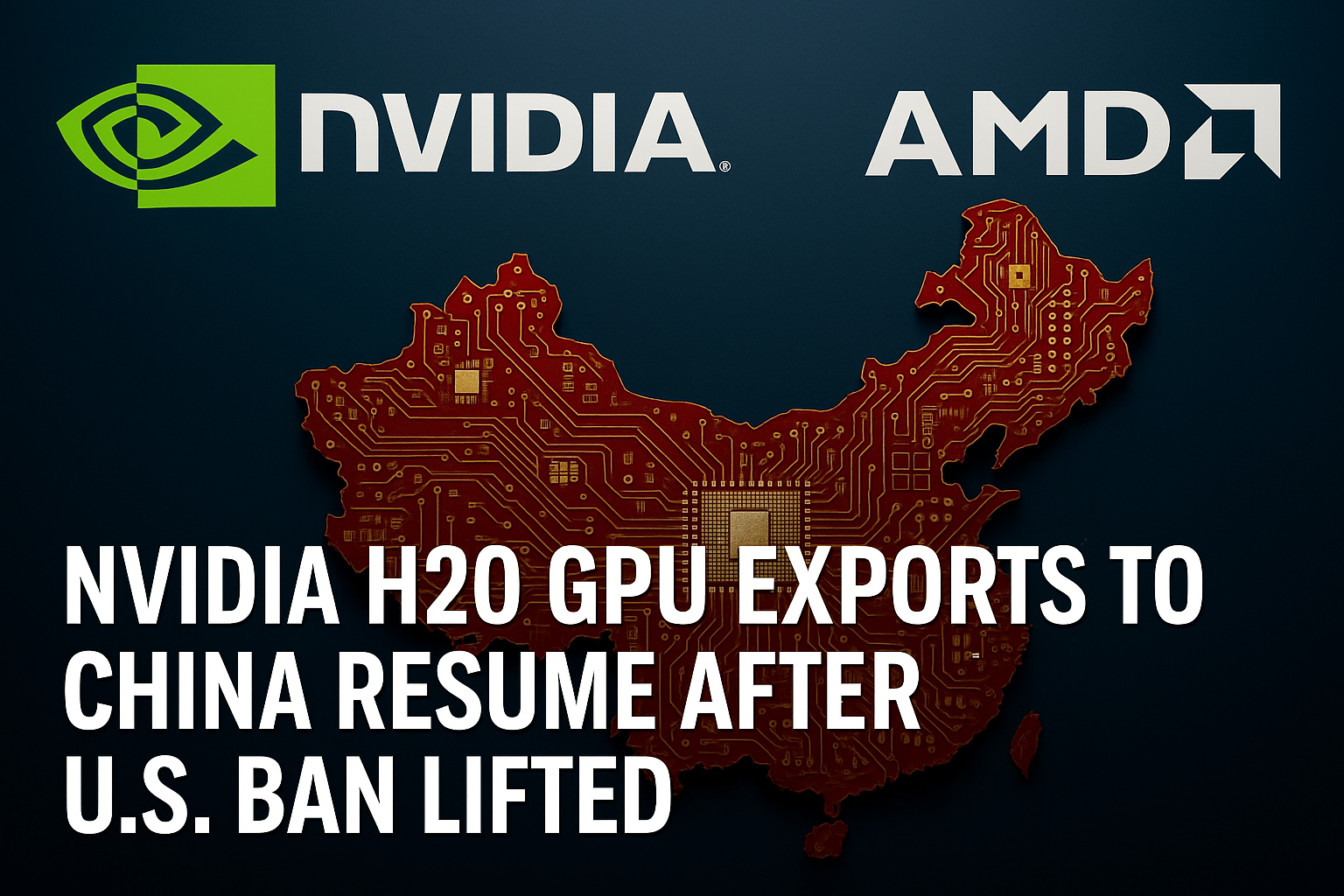In 2025, the world’s biggest tech companies are engaged in a high-stakes competition not for users or ad space, but for AI dominance. Google, Amazon, and Meta are collectively investing over $250 billion this year alone in artificial intelligence infrastructure, research, and data centers. Here’s a closer look at what each company is doing, why these investments matter, and how they will shape the future of technology.
Amazon Web Services (AWS): Leading the AI Infrastructure Boom
Amazon, through its cloud division AWS, is planning to invest $100 billion in 2025. The company’s primary focus is on:
- Expanding AI-focused data centers across North America and Europe.
- Building custom AI chips like Trainium and Inferentia to compete with NVIDIA.
- Enhancing its cloud-based machine learning services to support LLMs and generative AI platforms.
Key Objective:
AWS aims to remain the go-to platform for AI startups and enterprises by offering scalable, energy-efficient, and cost-effective cloud infrastructure.
Google: $85 Billion to Reinvent Search and AI Products
Google’s $85 billion investment is primarily aimed at transforming its existing services through AI. Key initiatives include:
- Powering its Gemini AI model to compete with OpenAI’s GPT.
- Integrating AI into Google Search, Gmail, Docs, and YouTube.
- Opening new AI research hubs in Asia and the Middle East.
- Boosting its cloud AI services to attract more enterprise clients.
What’s Driving Google?
Google is betting on AI to redefine how users search, interact, and create content — moving beyond text and keywords to context and intent.
Meta: $64–72 Billion to Build the “AI-Powered Metaverse”
Meta (formerly Facebook) is not backing down either. With a planned spend of $64 to $72 billion, the company is:
- Developing powerful AI models like LLaMA and Emu.
- Enhancing AR/VR technologies and their integration with AI for immersive experiences.
- Scaling AI content moderation for Facebook and Instagram.
- Training thousands of custom chips in its proprietary data centers.
What Makes Meta’s Strategy Unique?
Unlike Google and Amazon, Meta is combining AI with virtual environments, aiming to build an AI-native social and digital world where users can work, play, and communicate seamlessly.
Why This Matters: More Than Just Tech
These investments go far beyond competitive positioning. They’re shaping:
- How we work: AI is automating code, content, customer service, and more.
- What we consume: Personalized, AI-curated feeds are becoming the norm.
- Global economies: Entire job sectors are being redefined, especially in tech, marketing, and education.
But there are concerns too — especially about data privacy, energy consumption, and the centralization of AI power within a few global corporations.
Challenges Ahead: The Other Side of the Coin
While the race accelerates, critics highlight a few major issues:
- Carbon Footprint: Data centers consume massive energy, raising sustainability concerns.
- Ethics and Bias: Training data can reflect social biases if not carefully managed.
- AI Regulation: Governments worldwide are lagging behind in setting clear rules.
These challenges demand collaboration between industry leaders, governments, and civil society to ensure that innovation does not outpace responsibility.
A Defining Year for AI’s Future
2025 might be remembered as the year when AI shifted from cutting-edge to mainstream. With trillions of dollars in motion, the decisions made by Google, Amazon, and Meta this year will influence the direction of AI for the next decade.
As users, creators, and developers, it’s crucial to stay informed, understand the trends, and adapt to the changes coming faster than ever. AI is planned to be further developed towards the end of 2025.





